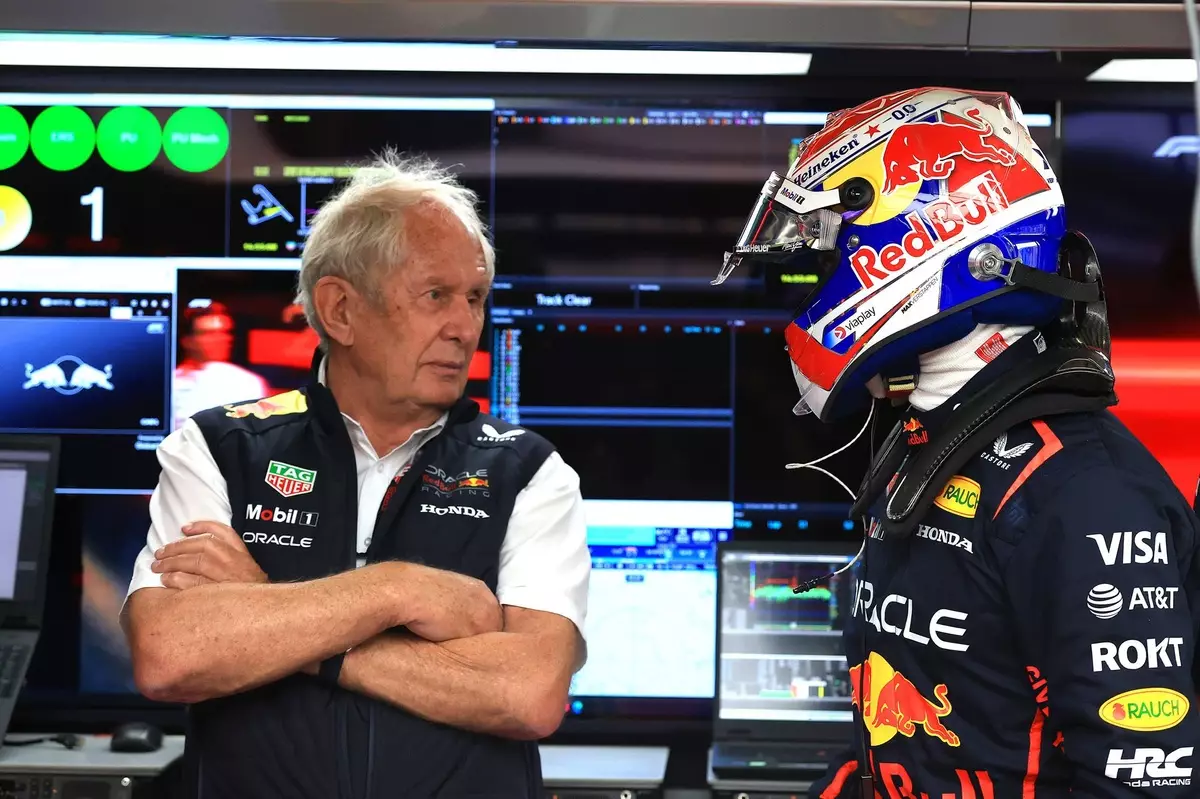Max Verstappen, the reigning Formula 1 world champion, has long been a controversial figure on the racing circuit, and his recent performance at the Spanish Grand Prix has only intensified that narrative. Helmut Marko, Red Bull’s advisor, expressed bewilderment over Verstappen’s decision-making as the race unfolded. The final laps saw chaos erupt, primarily triggered by Verstappen’s moment of distraction during a crucial safety car restart. The waters surrounding this incident reveal not only Verstappen’s character but also the intricacies and psychological pressures of competitive racing.
Racing is an intricate ballet of strategy, reflexes, and emotional control. Verstappen’s struggle during the race can be seen as a case study in how high-stake situations can lead even the best to falter. Marko pointed to what he called the “decisive moment” that saw his driver drop from a promising position, ultimately losing third place to Charles Leclerc. As the adrenaline surged, Verstappen’s decision to engage with George Russell aggressively underlined the thin line that separates competitive spirit from reckless behavior.
The Domino Effect of Pressure
It is crucial to examine how pressures collide within the context of a racing environment. The safety car restart often serves as a catalyst for unpredictable racing; drivers have to recalibrate their strategies quickly, and sometimes they misjudge the intentions of their competitors, as seen when Verstappen lost his edge. Marko noted that what followed was a series of blunders, culminating in Verstappen’s contentious collision with Russell.
This moment speaks volumes about not just Verstappen’s racing instincts but also the psychological battle each racer faces. Emotional turmoil, heightened during intense competition, can lead to miscommunications and split-second decisions that might have been avoided in a more controlled mindset. Verstappen’s frustration, at that moment, manifested in a dangerous and poor decision that resulted in a 10-second penalty, highlighting that the consequences of impulse in racing are rarely just personal.
The Clashes of Champions: A Dissection of Rivalries
The history of rivalry on the racetrack is a multifaceted story painted with both admiration and tension. Verstappen’s clash with Russell cannot solely be blamed on the race conditions; rather, it exudes a palpable tension that has been simmering from previous encounters. Marko admitted that issues between the two drivers predated this race, and emotions were undoubtedly running high, contributing to the rift that surfaced that day.
Remarkably, it seems that Verstappen is battling not just against his competitors but also against his internal demons. The match-up against Russell has turned into a microcosm of the larger psychological battles that take place in every race. From Marko’s observations, it appears feelings trickle into decisions, frequently dictating actions more than rational thought. This raises questions: How much does past rivalry shape a driver’s immediate reactions? Is every decision thrust into a framework of vengeance rather than calculated strategy?
Reflections and Consequences: The Road Ahead for Verstappen
What happens next for Verstappen after his public acknowledgment of wrongdoings is vital. His apology reflected a rare vulnerability, reminding fans and pundits alike that even champions can lose their way. Such admissions, however, often come with layers of complexity. Marko’s jest about Verstappen’s reluctance to accept fault only highlights a broader issue—how do athletes grow amid confrontations with their own tendencies?
The ramifications of Verstappen’s mistakes extend beyond this single race. With the accumulation of penalty points threatening a potential race ban, his path forward will demand a reconsideration of how he channels his fiery spirit into productive energy rather than reckless abandon. The emotional rollercoaster of racing, combined with the weight of expectation, creates a potent mix that can either forge a greater champion or unravel a career.
As the racing world watches closely, the narrative of Max Verstappen at the Spanish Grand Prix illustrates a fundamental truth in high-pressure sports: It’s not just about the race; it’s also about the battle waged in one’s own psyche.

